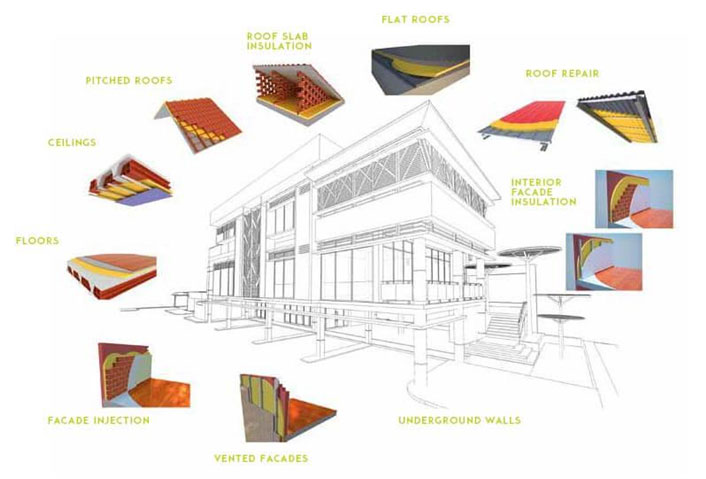Spray Foam Insulation
Spray Foam Insulation: What You Need to Know
What is Spray Foam Insulation?
Benefits of Spray Foam:
- Energy Efficiency: Keeps your home warm in winter and cool in summer.
- Air Sealing: Blocks air leaks and drafts.
- Moisture Control: Prevents mold growth by creating a moisture barrier.
- Noise Reduction: Acts as a soundproofing material.
- Durability: Long-lasting insulation with minimal maintenance.
Types of Spray Foam Insulation

Open-Cell Spray Foam
Open-cell spray foam is a light, flexible foam that expands significantly. It is less dense and has a spongy texture, allowing for some air and
- Interior walls
- Attics
- Soundproofing applications
- Lower cost
- Excellent sound absorption
- Expands to fill irregular spaces
- Lower R-value per inch compared to closed-cell
- Not as effective in moisture-rich environments
Closed-Cell Spray Foam
Closed-cell spray foam is denser and more rigid. It has a higher insulation value (R-value) per inch, and its closed structure makes it impermeable to water.
- Exterior walls
- Basements
- Roofs
- Areas with high moisture or risk of flooding
- Higher R-value (better insulation)
- Adds structural strength to buildings
- Acts as a vapor barrier
- Less flexibility
Spray Foam Insulation Applications

1. Attic Insulation
2. Wall Insulation
Applied to both interior and exterior walls, spray foam provides a superior air seal and insulation layer, reducing energy costs and increasing comfort.
3. Crawl Space Insulation
4. Basement Insulation
5. Roof Insulation
6. Soundproofing
Why Choose Spray Foam Insulation?

Making the Right Choice: Which Type is Best for You?
Choosing the right spray foam depends on your specific needs, budget, and the area you want to insulate. Here’s a quick guide to help you decide:
- Best for Interior Use: Open-cell spray foam
- Best for High Moisture Areas: Closed-cell spray foam
- Best for Energy Efficiency: Closed-cell spray foam
- Best for Soundproofing: Open-cell spray foam
- Best for Tight Spaces: Open-cell spray foam due to its expansion capabilities
- Best for Structural Support: Closed-cell spray foam
Frequently Asked Questions
1. How long does spray foam insulation last?
Properly installed spray foam can last for decades without the need for replacement.
2. Is spray foam safe for my home?
3. How soon can I use my space after installation?
4. Can spray foam help reduce my energy bills?
Absolutely. Spray foam provides superior air sealing, significantly reducing energy costs by keeping air conditioned inside your home.
Ready to make your home more comfortable and energy-efficient?
Contact us today for a free, no-obligation consultation. Our experts can help you decide the best type of spray foam for your needs and provide a detailed estimate.
